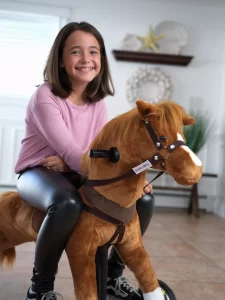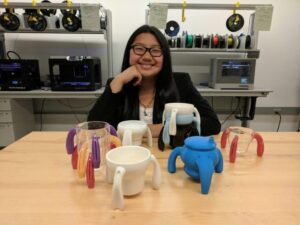Aaron Krause started out in 2004, by fixing printing equipment. A part of his job the pain was getting ink all over his hands. He could never find a tool that was strong enough to remove the ink. Amongst his pain there was an underlying product waiting to happen. Krause came up with the idea of a hand scrubber. This innovation helped him a lot, he later produced the idea and patented it. The problem came into place when retail stores started to complain about how expensive the hand scrubber was, and they didn’t see the value in the product. Later in 2013, he came across a dirty chair to wash it with a normal scrubber he scratched the paint. Krause then searched the house for a new tool and came across his old innovation. He tried his hand scrubber on the chair, and it worked perfectly. There were no scratches and when he was done using the sponge it looked perfectly the way it was. That’s when he knew he was targeting the wrong audience. After struggling to enter his product into bigger retail stores he decided to audition for Shark Tank. Sealing the deal with Lori Griener opened up powerful and large retail stores that would allow scrub daddy exposure to its correct target market. Till this day scrub daddy was the most successful product to date on Shark Tank. One connection on Shark Tank allowed scrub daddy to grow and maximize its potential as a scrubber.
At just 11 years old, Mikaila Ulmer transformed a childhood curiosity into a thriving business with a mission. As the founder of Me & the Bees Lemonade, Mikaila created a company that combines a delicious product with a meaningful purpose. Her lemonade, made from her great-grandmother’s flaxseed recipe, isn’t just a refreshing drink—it’s part of a more significant effort to save bees, a species critical to the environment.
The idea for Me & the Bees Lemonade began when Mikaila, living in Texas, was stung by two bees in one week. Instead of fearing them, she grew curious and started researching bees, learning about their importance to the environment and the alarming threats they faced. Around the same time, her great-grandmother sent her a flaxseed lemonade recipe. Mikaila combined her love for the environment with her entrepreneurial spirit, creating a lemonade to help fund bee conservation efforts. She started selling her lemonade at a stand and quickly caught the attention of her community.
Her business proliferated. After pitching her idea on Shark Tank, Mikaila secured an investment that helped her scale production. Soon, her lemonade was sold at major retailers like Whole Foods and Target. Each bottle carried her personal story and a message about the importance of protecting pollinators, resonating deeply with customers who shared her values. By tying her product to a purpose, Mikaila built a loyal customer base that supported her lemonade and her mission.
Several entrepreneurial principles contributed to Mikaila’s success. She identified a niche market that valued sustainability and offered a unique product that stood out in a crowded market. She also told a compelling story, using her age and passion to connect with customers and investors. Effective branding, including playful packaging and personal advocacy, reinforced her image as a young, impactful entrepreneur.
Mikaila has sustained her success by remaining true to her mission. As her business expanded, she introduced new flavors and donated profits to bee conservation. Her story has inspired young entrepreneurs worldwide, showing that passion and purpose make success possible. Mikaila Ulmer proves that even at a young age, creating a business that makes a difference is possible.



